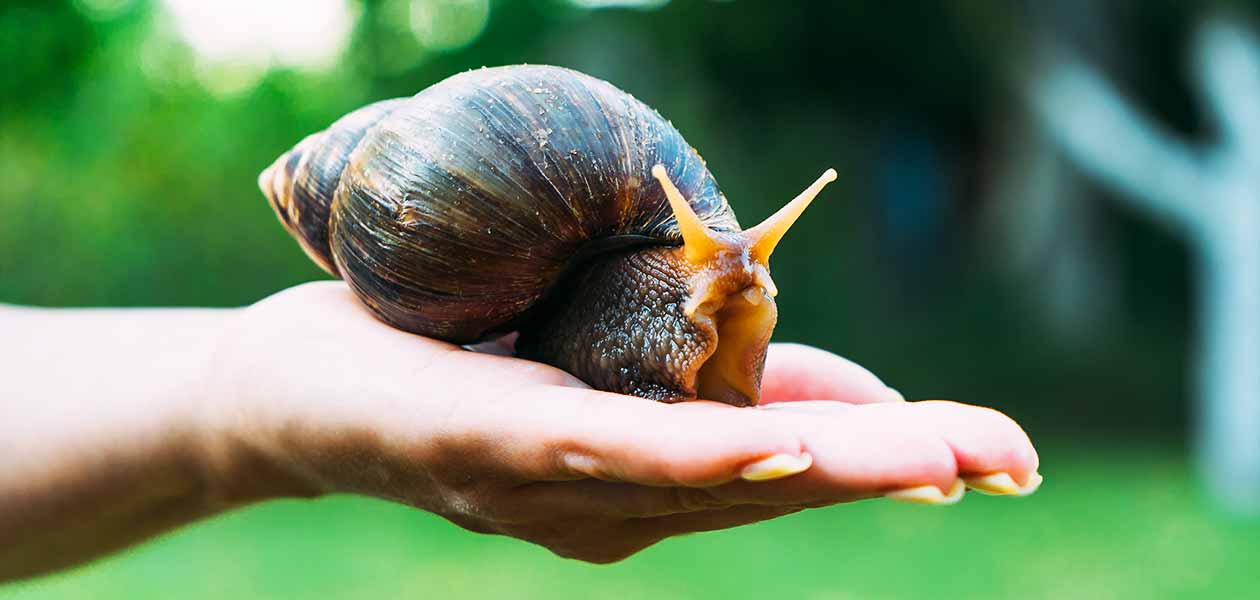African Land Snail Care Sheet
Housing
There is a wide range of suitable enclosures for Giant African land snails, glass tanks can be used as long as the roofs are low. Plastic tanks are also a favourable option, but any tank must be well ventilated and at least 45x45x45cm. African Land Snails do chew wood though, so keep that in mind.
Heating
This species requires temperatures between 20-25 o C, in some cold houses a heat mat with a thermostat will be required. To check temperatures, a digital or an infra-red thermometer should be used
Lighting
No additional lighting is necessary, but a small LED light can be used for visual lighting.
Decoration
Snails are quite prone to dropping off the top of the enclosures, and a fall onto a hard surface could damage or potentially break their shell, so avoid hard objects
Plastic food dishes, flowerpots, cork bark, plastic plants and flowers are all suitable for snails. It is a good idea to have sphagnum moss in the enclosure as it will aid humidity levels.
Substrate
Coir substrate is the best option to use, and you can buy it as compact bricks or loose. The peat substrate should be deep enough (3-6cm) for the snail to fully bury itself into.
Feeding & Supplementation
Cuttlefish should be provided as a source of supplementation for giant African land snails. The snails rasps at the cuttlefish bone and use it as a source of calcium for egg laying as well as to help them grow and repair their shells.
There is a wide variety of foods you can offer them. A protein day should be given at least once week, this can be in the form of fish flakes (no garlic in them), soaked in water, dried mealworms crushed up and soaked into water, and you can even offer pinkie mice as a rarer treat for them to eat.
Salad, fruits, and vegetables comprise the majority of their diet. All items offered should be thoroughly washed as insecticides can linger.
As long as they are free from pesticides, the following food items are considered safe:
- Apple
- Artichoke
- Banana
- Basil
- Beans
- Blueberries
- Butternut squash
- Cabbage
- Carrot
- Cauliflower
- Celeriac
- Cherry
- Clover
- Courgette
- Cress
- Cucumber
- Dandelion leaves
- Lettuce
- Kale
- Kiwi
- Mango
- Marrow
- Mushrooms
- Nettle
- Passion Fruit
- Peach
- Peas
- Pears
- Pepper
- Plantains (when very ripe – totally black and mushy)
- Plum
- Pumpkin
- Salad bags
- Spirulina
- Spring greens
- Strawberries
- Sweetcorn
- Sweet potato
- Tangerine
- Tomato
- Turnip
- Watermelon
For any further information or advice please feel free to message us on Facebook or contact the store on 01902 494860




